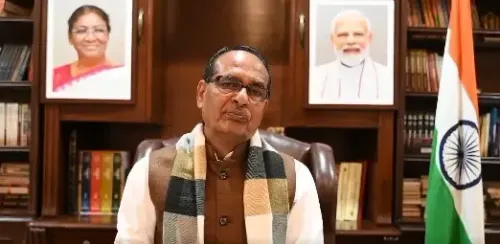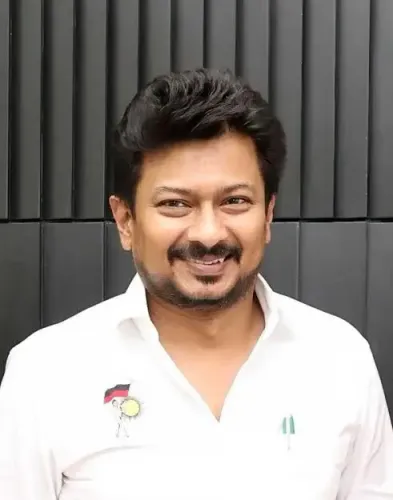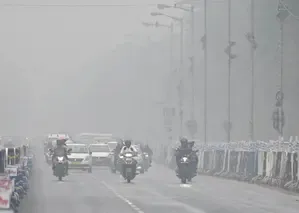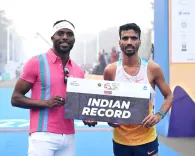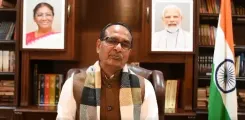Who was V.S. Achuthanandan, the indomitable Communist leader?
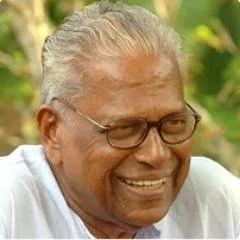
Synopsis
Key Takeaways
- V.S. Achuthanandan passed away at the age of 101.
- He was a founding member of the CPI(M).
- Known for his stances on corruption and women's rights.
- Had a significant impact on Kerala's political landscape.
- His legacy will influence future generations.
Thiruvananthapuram, July 21 (NationPress) One of India’s most prominent and venerable Communist leaders, V.S. Achuthanandan, breathed his last at a private hospital in the city on Monday at 3.20 p.m., reaching the remarkable age of 101.
Affectionately referred to as "VS" by both friends and foes, Achuthanandan was the last remaining founding member of the Communist Party of India (Marxist), established in 1964 after a split from the CPI.
He, along with fellow comrades, made a historical break from the original Communist Party of India, marking a significant ideological shift.
He is survived by his wife, son, and daughter.
CPI(M) state secretary M.V. Govindan addressed the media following the news of his passing, detailing the funeral arrangements.
“The body will be taken to the AKG Centre, his political stronghold for many years. It will then be transported to his home in Thiruvananthapuram. On Tuesday morning, the body will lie in state at the Secretariat Durbar Hall for the public to pay their last respects. Later in the afternoon, it will be moved to his birthplace in Alappuzha,” he said.
“On Wednesday, his remains will be displayed at the CPI(M) district office in Alappuzha, and the final rites will take place at the Valiyachudukad cremation ground,” he added.
Following the announcement of his death, CPI(M) party flags across the state were flown at half-mast, and black flags were raised in tribute.
Born on October 20, 1923, in Punnapra, Alappuzha, Achuthanandan faced adversity early on, losing his parents and leaving school after Class 7.
Despite a lack of formal education, he ascended through the ranks of the Communist movement—from a tailoring apprentice and trade union supporter to becoming the Chief Minister of Kerala and a lasting political symbol.
His political journey gained traction during the 1946 Punnapra-Vayalar uprising against the Travancore Diwan, Sir C.P. Ramaswami Iyer. His arrest during this time only enhanced his public appeal.
He served as Alappuzha district secretary, and by 1957, he was a member of the CPI(M)’s state committee and secretariat.
Achuthanandan faced defeat in his first election campaign in 1965, but emerged victorious two years later. A pivotal moment came in 1996 when, despite being the CPI(M)’s chosen candidate for Chief Minister, he was unexpectedly denied the role after a defeat.
His popularity surged while serving as Leader of the Opposition from 2001 to 2006. Known for his steadfast stances on corruption, women's rights, and public welfare, he became a mass leader, bridging party lines.
Tensions with Pinarayi Vijayan, then state party secretary and now Chief Minister, created challenges in his political journey.
In 2006, when the party initially refused to give him a ticket, public protests erupted. Responding to the outcry, the CPI(M) reinstated his candidacy. He led the Left Democratic Front to victory and became Chief Minister.
However, discord between VS and Vijayan persisted, leading to both being suspended from the CPI(M) Politburo during their terms. Vijayan was later reinstated, but Achuthanandan was not.
In 2011, another wave of support from party workers secured his candidacy, and he returned as Leader of the Opposition. Although he led the LDF’s campaign in the 2016 Assembly elections, the party chose Vijayan to govern following their win.
In a conciliatory move, the Politburo appointed Achuthanandan as Chairman of the Administrative Reforms Commission with cabinet rank, a position he held until January 2020, after which he withdrew from public life due to health complications.
Chief Minister Vijayan, who remains at the hospital, is expected to accompany Achuthanandan’s body to the AKG Centre.
Condolences have been flooding in from across the political spectrum, with leaders recalling VS as a principled, steadfast, and incredibly popular figure—a rare politician who remained a people's champion until the end.


